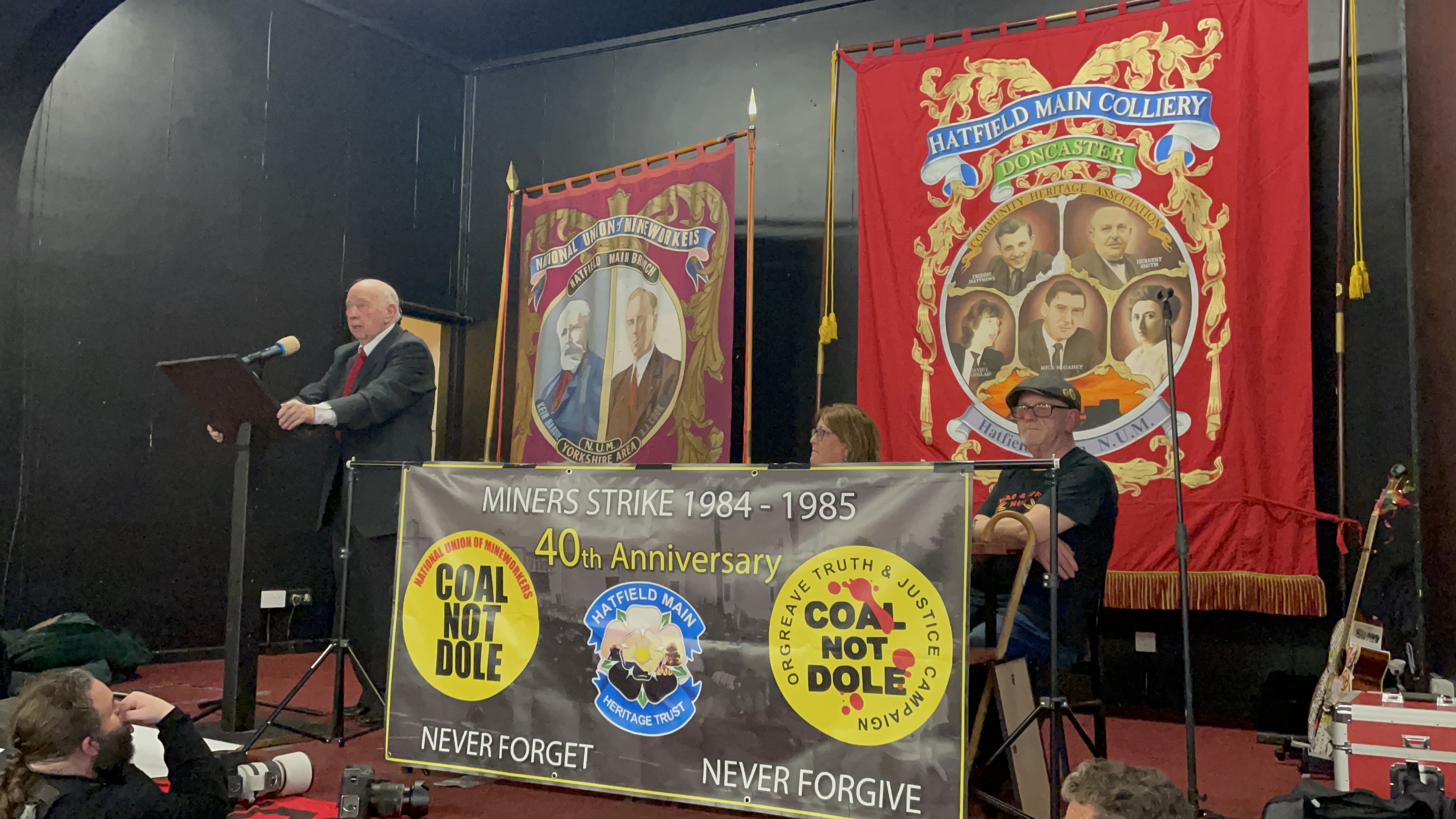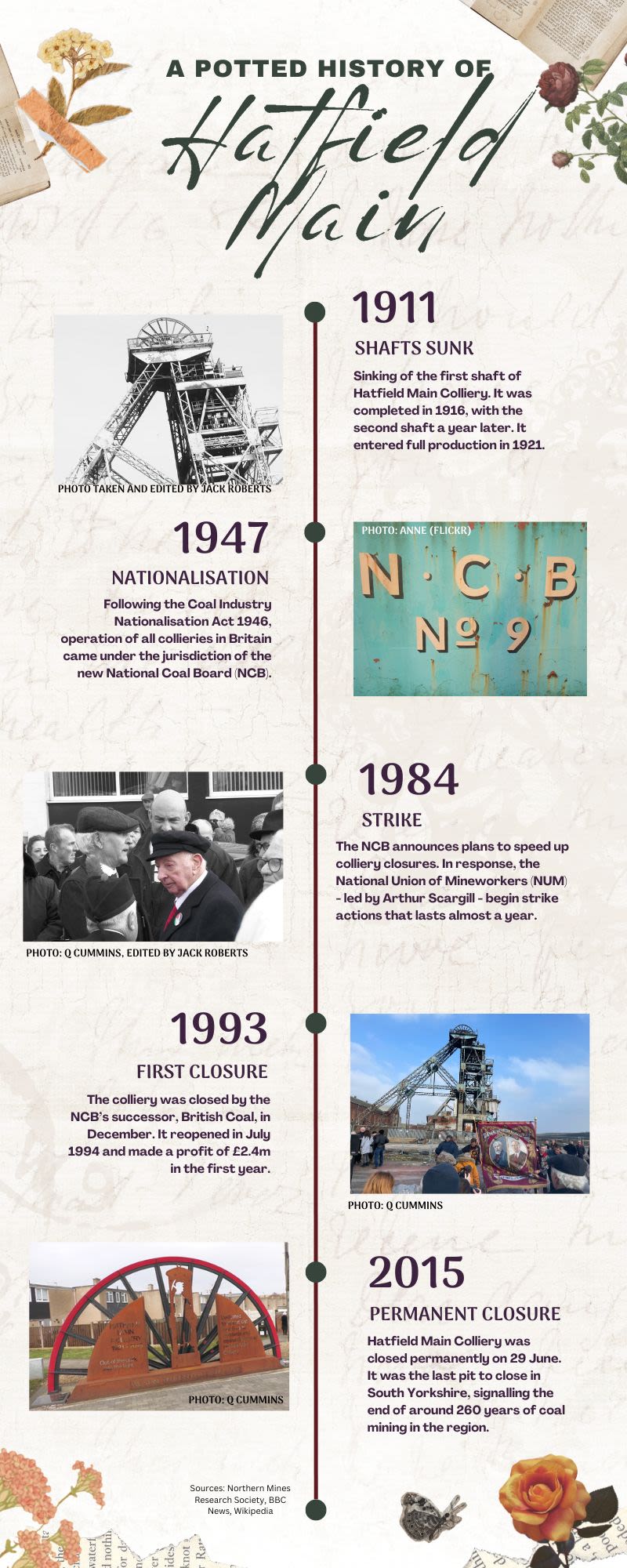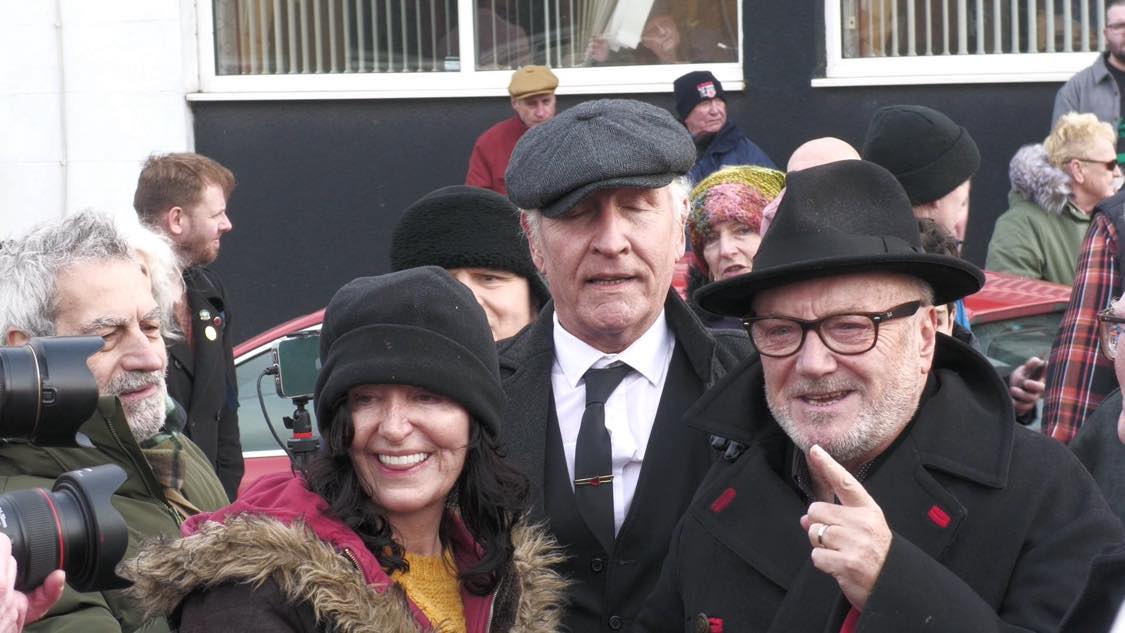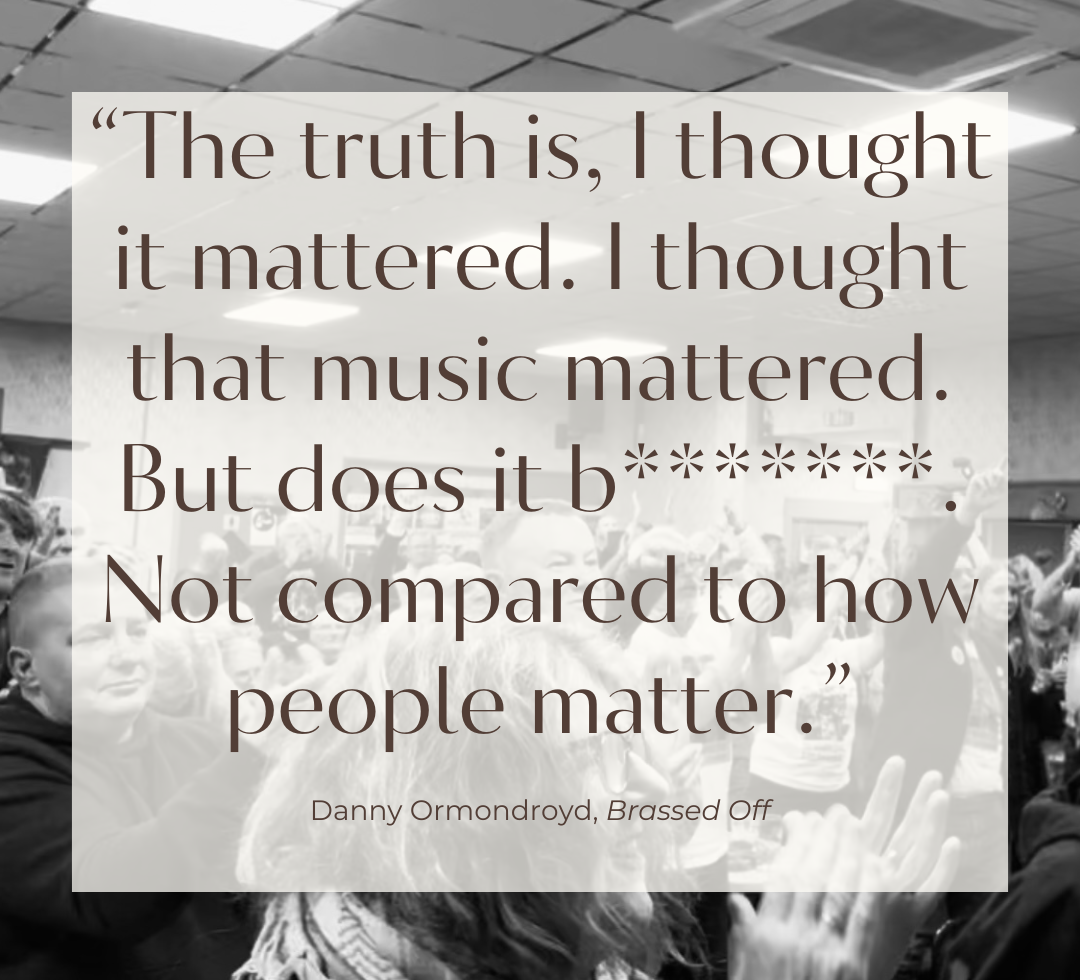Digging Deep at Hatfield Main
When workers of South Yorkshire's last colliery marked 40 years since they tried to save their industry - and were celebrated by their working-class hero.

On 6 March 1984, the National Coal Board (NCB) announced 20 mines in the UK were to be closed, putting 20,000 jobs at risk. What followed was an almost-year-long strike across the country as miners picketed the pits and clashed with police on countless occasions.
South Yorkshire was arguably hit the hardest, and hundreds of people recently descended on a Doncaster community to commemorate 40 years since one of history’s biggest working-class struggles began. This was marked on 9 March by the villages of Hatfield, Dunscroft and Stainforth – communities which housed workers at the Hatfield Main colliery for generations.
Hundreds of people assembled at the Broadway Hotel in Dunscroft before marching to the site of the old colliery to pay tribute. After speeches were made by Cllr Nigel Ball and Tom Picard, the procession moved to Hatfield Main Club in Stainforth.
There, they would be hearing from someone who had stood arm-in-arm with miners across the country four decades ago: Arthur Scargill, former President of the National Union of Mineworkers (NUM).
"What folks generally don't realise about Scargill is he was in these communities every week," said former Hatfield Main miner Will Moore. "He wasn't a leader who just turned out for an event. He led from the front and was there constantly."

Barnsley-born Mr Scargill is still revered as the man who took the fight to the heart of the Conservative government, then led by Margaret Thatcher, and continued in his position as NUM President until 2002.
Hundreds of people packed with excitement into Hatfield Main Club as the now-86-year-old took to the lectern and spoke candidly about his experiences for almost an hour.
“The strike brought our union unprecedented support from workers and countries all over the world,” he said. “France, Spain, East Germany, South Africa – even the Soviet Union and all the Eastern Bloc countries!”
Former Hatfield Main miner Will Moore gave his thoughts on the importance of coal mining to Doncaster and why the events of 1984/85 should be passed down in memory for the rest of time
Some argue mining in South Yorkshire had passed its peak already by 1984. Ten mines in the county had closed since the NCB was founded after coal was nationalised in 1947. However, the region lost nearly half its mines between the start of the strike and the time Mrs Thatcher left office in November 1990.
Hatfield Main was the last in the region to close in 2015. Although its closure wrapped up around 260 years of coal-mining in South Yorkshire, its continued operation over 30 years after the strike cemented the colliery as a bastion to miners across the region, and the country.
Mr Moore said: “In Doncaster, you would navigate your way around by going ‘that’s Hatfield pit, that’s Armthorpe, that’s Bentley’ – that’s how you got about.”
Mr Scargill, the afternoon’s main speaker, paid tribute to the resilience of the Hatfield Main community. He paid specific tribute to the Women Against Pit Closures group, who supported families of miners throughout the strike.
This followed a warm-up speech by Rose Hunter (middle of panel), who discussed the role played by the group in supporting those on strike.
Mr Scargill said: “If it had been left to the women, we would still be on strike,” which received thunderous applause from those in attendance.
However, the most notable presence beyond Mr Scargill was that of George Galloway, newly-elected MP for Rochdale. There were reservations from some that Mr Galloway’s attendance – on the back one of the most controversial by-elections in recent years – would take attention away from the main reason why everyone was there.
Despite this, Mr Galloway said: “Arthur Scargill is the ultimate working-class hero,” in a YouTube video filmed in front of the Hatfield Main memorial wheel. “All the miners were working-class heroes. All their wives, all their children, all the members of their community.”
These mirrored comments he made unofficially before Mr Scargill’s speech, which delighted attendees.

The presence of George Galloway (right), newly-elected MP for Rochdale, was the biggest besides Mr Scargill at the Hatfield Main commemorations. Photo: Q Cummins
Arthur Scargill ended his near-hour-long speech at Hatfield Main Club by paying tribute to those from the community who he stood side-by-side with on the picket lines 40 years ago.

Although the past cannot be altered, mining communities continue to fight to make sure their struggle is not lost in history. The strike was eventually called off on 3 March 1985 with no agreement and was seen as a pivotal moment in the decline of British industry.
In the eyes of Mrs Thatcher, the ‘enemy within’ had been defeated but the miners refused to go down without a fight. Mr Scargill recognised the impact the miners' strike had on the country - and the Prime Minister herself.
"In her autobiography, Mrs Thatcher said we had to do everything in our armoury to defeat the NUM," he said. "She devoted a whole chapter to me. I think she fancied me!"
Unsurprisingly, that comment was met with roaring laughter and louder applause, a perfect metaphor of the day's events. The community is still reeling from the loss of their socio-economic cornerstone, and they continue to 'never forget, never forgive'.
However, gathering to mark four decades since their "march into history", as Mr Scargill described it, allowed former miners and their families to remember the camaraderie, solidarity and fearlessness they brought to the picket lines as they stood up and fought tirelessly for what they believed in.
If you would like to learn more about the strike in its 40th anniversary year, the National Coal Mining Museum near Wakefield are running the 84/85 – The Longest Year exhibition throughout 2024. More information can be found here.
